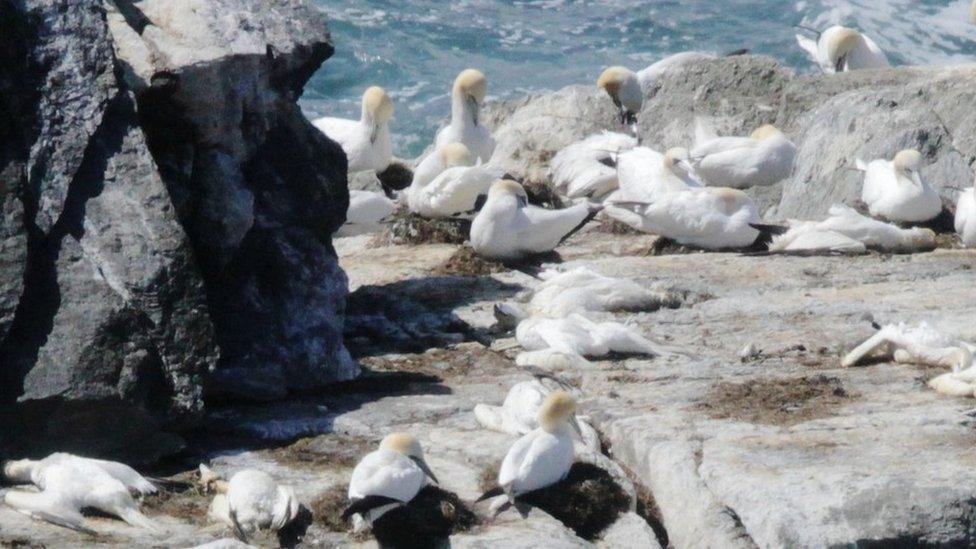Bird flu probe call in Dorset as 'dozens' of seabirds die
- Published
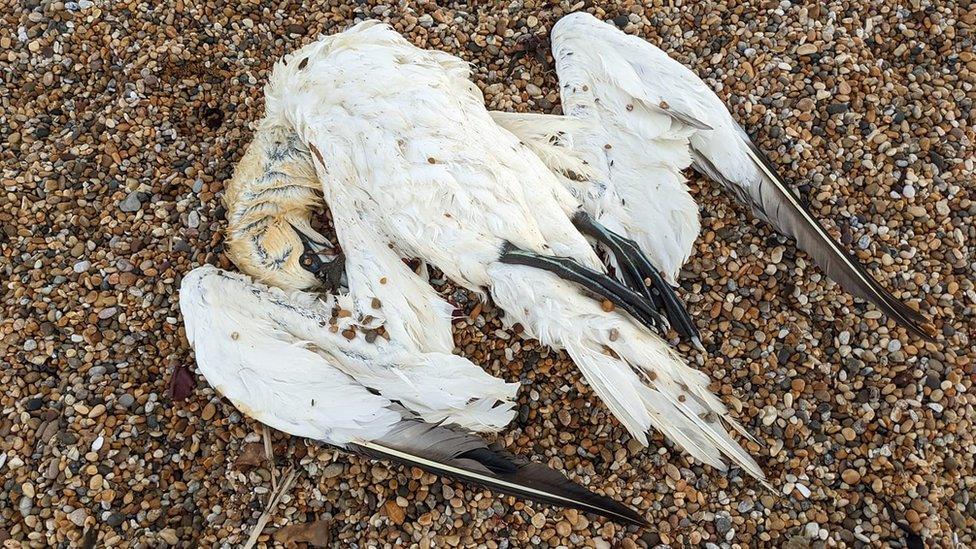
Dozens of dead gannets have been found on Dorset beaches but DEFRA will not say if it has collected any for examination
Dead and dying seabirds have been found on beaches and inland in Dorset prompting calls for a probe into a suspected bird flu outbreak.
The Portland Bird Observatory said "several dozen" dead and dying gannets had been spotted on Chesil Beach.
Last month, numerous seabirds were reported to be dying in Cornwall.
The government is investigating those deaths as part of its wild bird surveillance programme.
Martin Cade, manager of Portland Bird Observatory, said he had seen "several dozen on the Chesil Beach and on pavements and in fields".
"These are normally powerful seabirds that spend their life at sea. They only come ashore because they're sickly. You can see them sitting looking forlorn," he said.
"I saw one gannet personally die last week, right in front of my eyes."
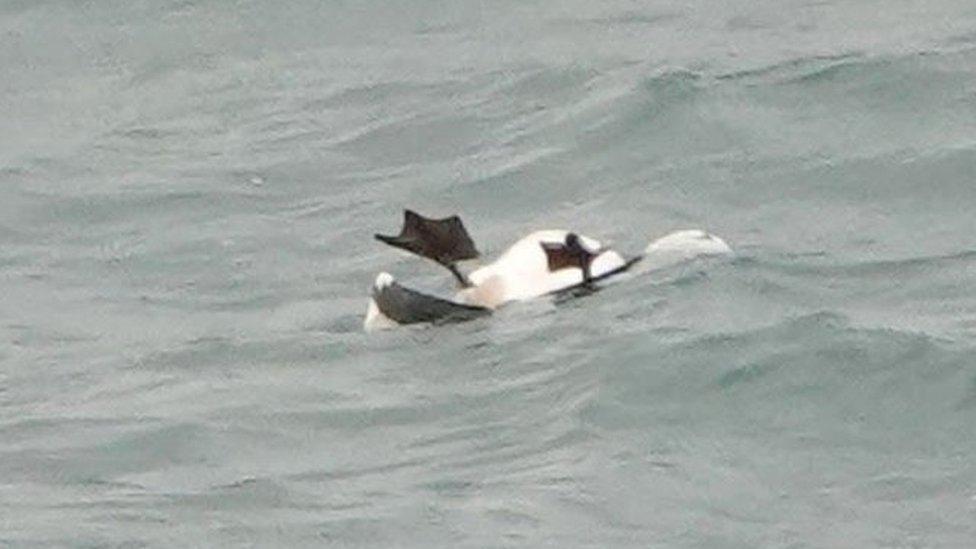
The gannet that died in front of Martin Cade from the Portland Bird Observatory
Mr Cade said he notified the Department for Environment, Food & Rural Affairs (Defra) helpline, but "presumably they are overwhelmed" because the dead birds were still on the beach.
"I was concerned they were being picked apart by gulls and crows, for all we know it'll be them next that's infected with bird flu and that's the ideal scenario for human transmission", he added.
Mr Cade said he also approached local authorities to see if they would collect the dead birds.
Bodies in gardens
Along the coast in Charmouth, Adrian Gray posted on Facebook that he saw seven dead seabirds on the beach last week.
Members of the Dorset Bird Club told the BBC sick and dying gannets were found in people's gardens.
Helen Wood found several at Swyre, near Chesil Beach, on Monday.
"I've never seen any dead gannets on the beach before and I know the stretch well," she said.
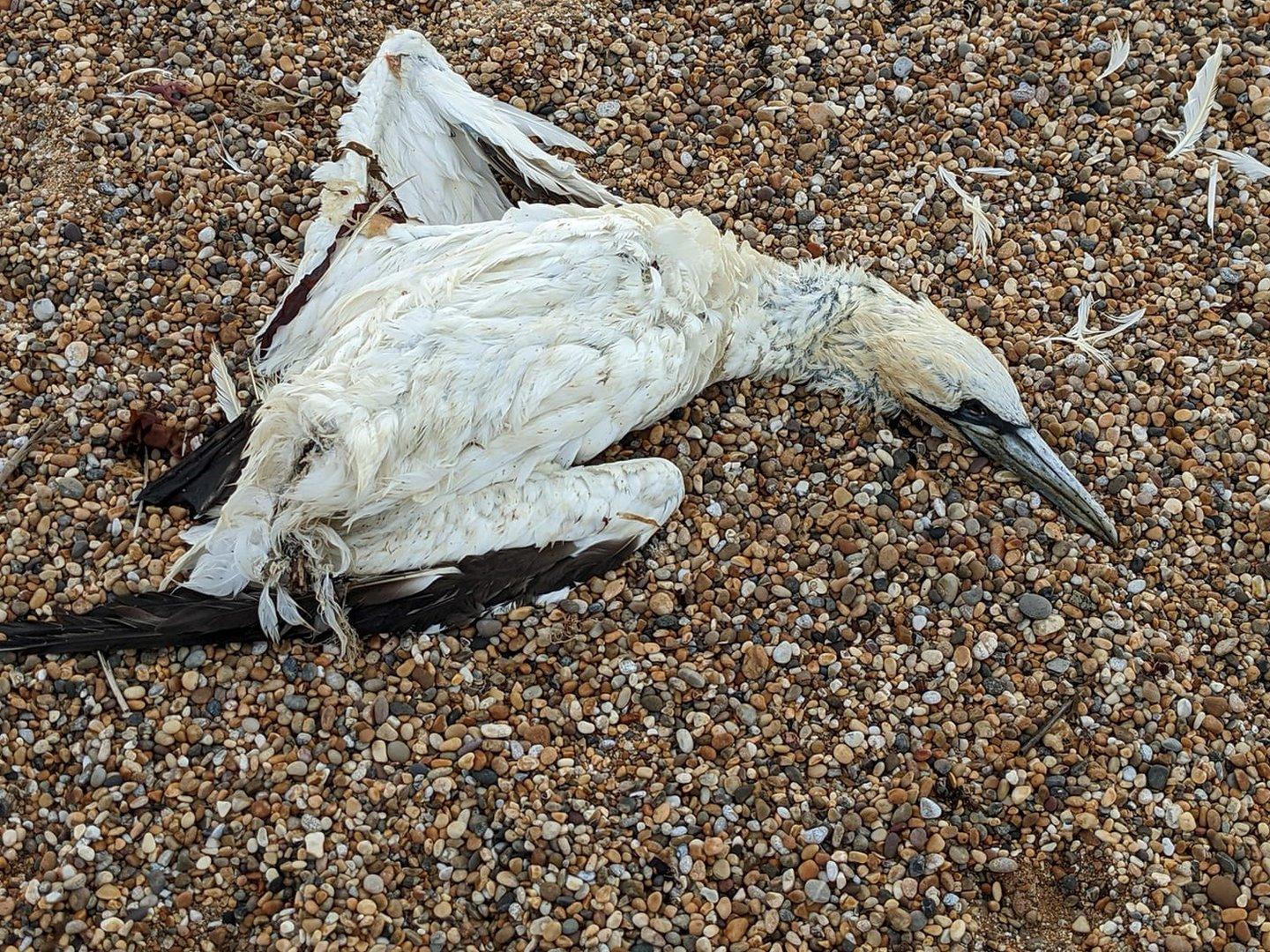
This gannet was found on a beach, but any that die on private land not needed for testing should be disposed of by the owner, Defra says
Defra said its Animal and Plant Health Agency (Apha) carries out year-round avian influenza surveillance of dead wild birds submitted via public reports and warden patrols.
"Members of the public should call the Defra helpline if they find one or more dead bird of prey or owl, three or more dead gulls or wild waterfowl, five or more dead birds of any species," it said.
"We then collect some of these birds and test them to help us understand what risk posed to poultry and other captive birds is, through understanding how the disease is distributed geographically and in different types of wild bird, not all birds will be collected."
Dorset Council has been approached for comment.

Follow BBC South on Facebook, external, Twitter, external, or Instagram, external. Send your story ideas to south.newsonline@bbc.co.uk, external.
- Published1 September 2022
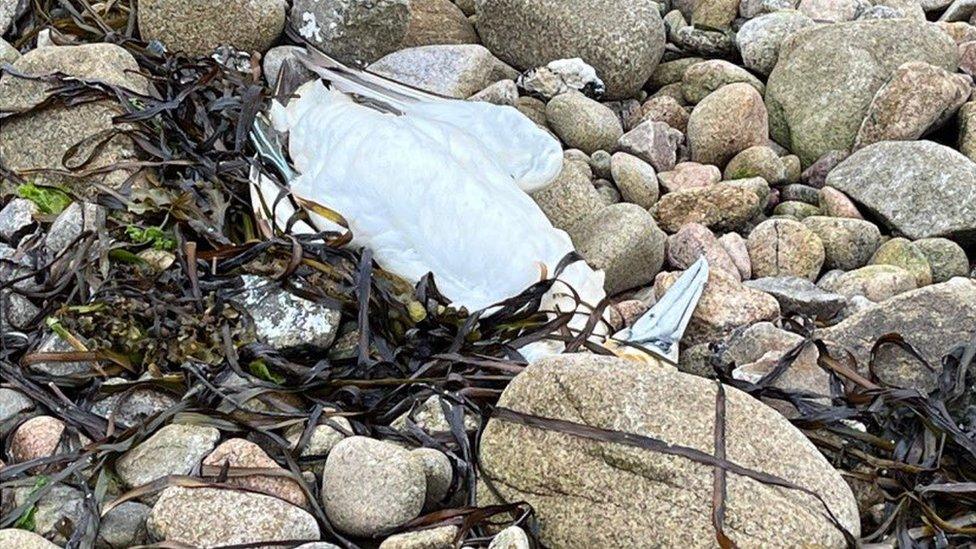
- Published24 August 2022
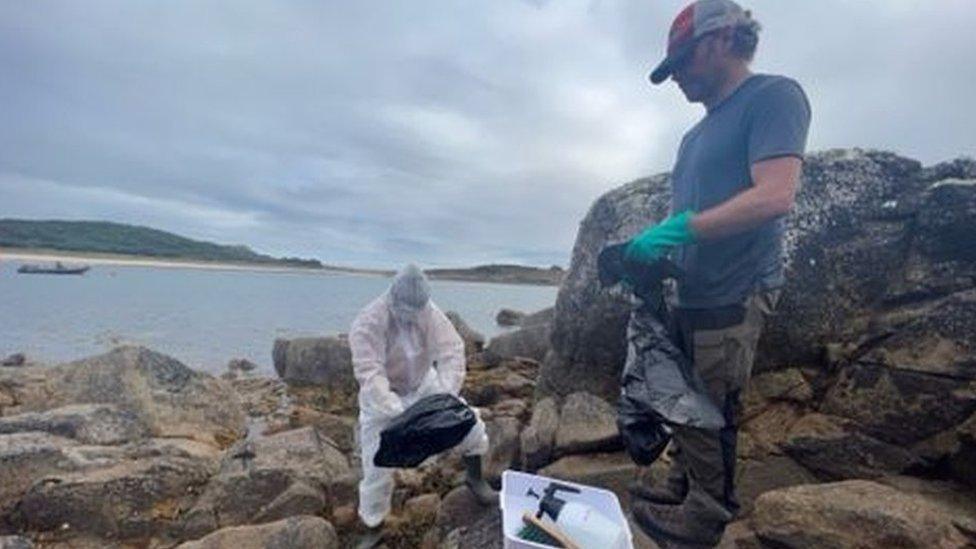
- Published19 August 2022
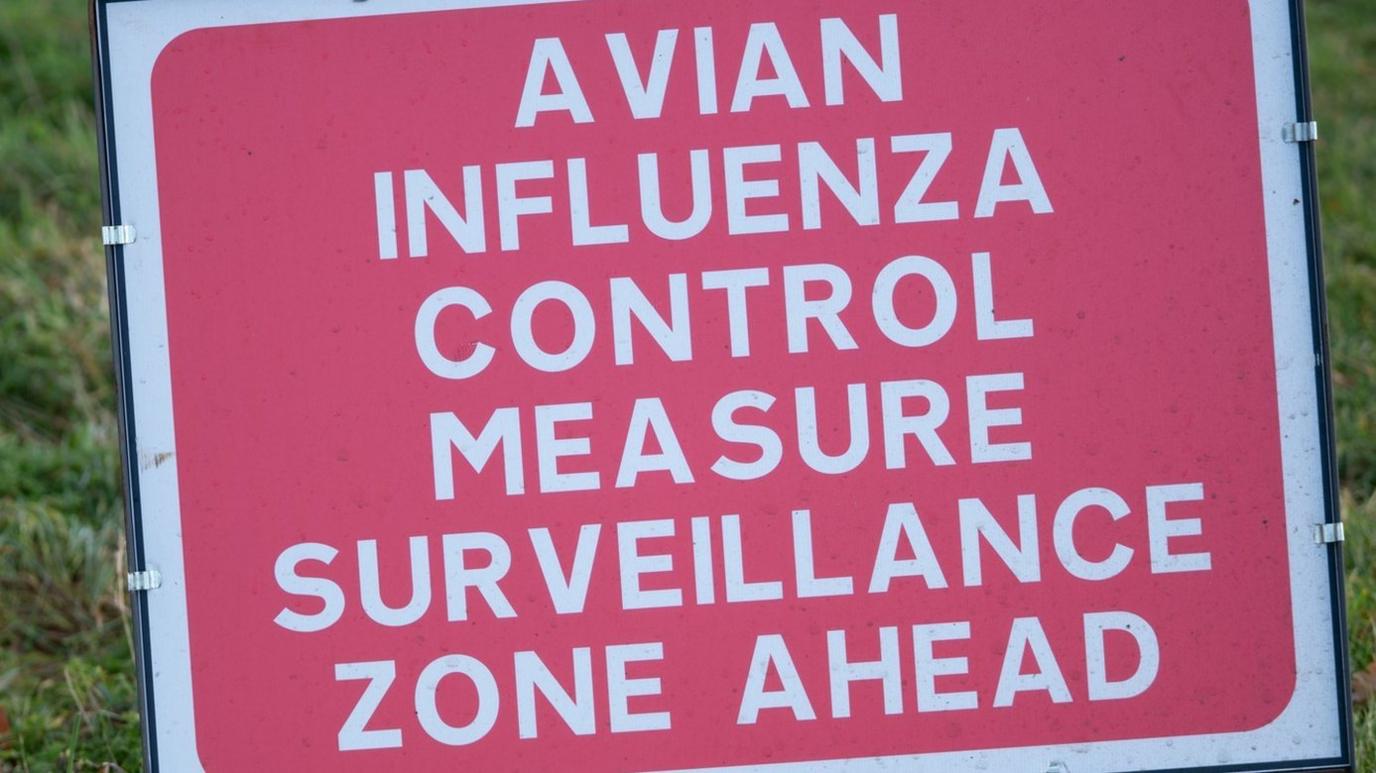
- Published6 June 2022
